In today's fast-paced world, businesses need to engage with their customers quickly and efficiently. Chatbots are a popular choice for providing instant support and improving customer experience. However, without the right AI tools, chatbots can fall short of expectations.
Luckily, there are several AI tools available that can enhance the functionality of chatbots and help businesses stay ahead of the game. From natural language processing to sentiment analysis, these tools can make chatbots more intelligent and responsive to customers' needs. In this blog, we'll explore the best AI tools for chatbots that can help businesses improve their customer experience, increase efficiency, and ultimately, boost growth.
Dialogflow

Dialogflow is a powerful natural language processing platform developed by Google that allows developers to build conversational interfaces such as chatbots and virtual assistants. It offers a wide range of features, including voice and text-based conversational interfaces, machine learning capabilities, and integrations with popular messaging platforms such as Facebook Messenger and Slack. Dialogflow's user-friendly interface and powerful AI algorithms make it easy for developers of all skill levels to create intelligent and interactive chatbots that can understand and respond to user queries in real-time. Additionally, Dialogflow offers multi-language support, allowing developers to build chatbots in multiple languages and easily scale their solutions globally.
Pros
Cons
Overall Rank
IBM Watson Assistant
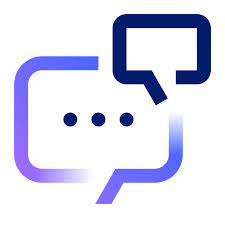
IBM Watson Assistant is an artificial intelligence-powered conversational interface that enables businesses to build and deploy chatbots, virtual assistants, and voice assistants. The platform is highly customizable, allowing businesses to create unique and tailored experiences for their customers. IBM Watson Assistant is capable of understanding natural language and can provide accurate and context-specific responses to inquiries. With its integration capabilities, Watson Assistant can connect to other applications and databases, making it easier to retrieve and process information. Moreover, IBM Watson Assistant's analytics capabilities provide insights into customer interactions, allowing businesses to make data-driven decisions and optimize their conversational interfaces.
Pros
Cons
Overall Rank
Botpress

Botpress is an open-source conversational AI platform that allows developers to build, deploy, and manage chatbots and virtual assistants. With its drag-and-drop interface, Botpress makes it easy to design and customize chatbots with features such as natural language processing, machine learning, and integrations with popular messaging platforms. Botpress also offers a powerful analytics dashboard that provides insights into user behavior and bot performance, allowing developers to make data-driven decisions and improve the user experience.
Pros
Cons
Overall Rank
Rasa
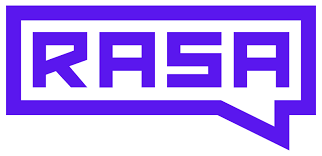
Rasa is an open-source machine learning framework that allows developers to build conversational AI applications. With its powerful Natural Language Processing (NLP) and dialogue management capabilities, Rasa enables developers to create highly interactive chatbots and virtual assistants that can understand and respond to user input in a more natural way. Rasa also offers a flexible and modular architecture, making it easy for developers to customize and extend its capabilities to fit their specific use cases.
Pros
Cons
Overall Rank
Tars
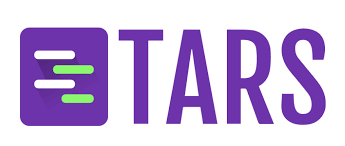
Tars is a highly advanced and intelligent robot designed to assist in space exploration and other challenging tasks. With its sleek and durable design, Tars can withstand the extreme conditions of outer space and provide reliable support to astronauts and scientists. Tars is equipped with a wide range of sensors and instruments that enable it to analyze and interpret data in real-time, allowing it to make informed decisions and take appropriate actions. Moreover, Tars is highly adaptable and can be programmed to perform a variety of tasks, from repairing spacecraft to conducting scientific experiments. With its exceptional capabilities and versatility, Tars is a valuable asset to any space mission.
Pros
Cons
Overall Rank
Wit.ai

Wit.ai is a natural language processing (NLP) platform that allows developers to build applications that understand human language. It uses machine learning algorithms to interpret and extract meaning from unstructured text. The platform supports a wide range of use cases, including chatbots, voice assistants, and language translation. Wit.ai's strength lies in its ability to learn from user interactions and improve over time, resulting in more accurate and efficient language processing. Additionally, the platform offers a user-friendly interface and extensive documentation, making it easy for developers to integrate NLP capabilities into their applications.
Pros
Cons
Overall Rank
ManyChat

ManyChat is a popular chatbot platform that allows businesses and individuals to create automated messaging sequences on Facebook Messenger, WhatsApp, and other messaging platforms. With ManyChat, users can easily design and deploy chatbots, automate customer support, and create engaging marketing campaigns. The platform comes with a range of features, including drag-and-drop chatbot builder, audience segmentation, AI-powered chatbots, and integration with popular marketing tools. ManyChat is user-friendly and provides a range of templates and tutorials to get started. With its user-friendly interface and robust feature set, ManyChat is an excellent choice for businesses looking to automate their customer support and marketing.
Pros
Cons
Overall Rank
Chatfuel
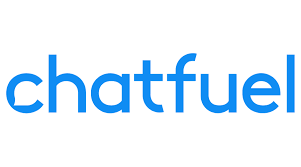
Chatfuel is a user-friendly chatbot-building platform that enables businesses to create their own chatbots without requiring technical skills. With its intuitive drag-and-drop interface, users can easily build chatbots that can answer frequently asked questions, book appointments, and provide product recommendations. The platform also provides advanced features such as Natural Language Processing (NLP) and AI-powered chatbots to enhance the conversational experience. Chatfuel also offers integrations with various messaging platforms such as Facebook Messenger, Telegram, and WhatsApp, making it easy for businesses to connect with their customers on the platforms they prefer. Overall, Chatfuel is a powerful tool for businesses looking to leverage the power of chatbots to enhance their customer service and improve their bottom line.
Pros
Cons
Overall Rank
Pandorabots

Pandorabots is a chatbot development platform that allows users to build and deploy conversational agents across various channels. With its powerful AI capabilities and natural language processing technology, Pandorabots can understand and respond to users' queries in a human-like manner. Its user-friendly interface and vast library of pre-built templates and modules make it easy for even non-technical users to create complex chatbots without any coding experience. Moreover, its integration with popular messaging platforms like Facebook Messenger and Slack enables businesses to engage with their customers in real-time, providing quick and personalized support.
Pros
Cons
Overall Rank
Amazon Lex
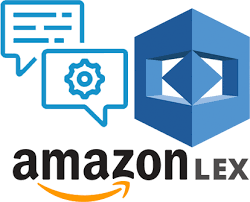
Amazon Lex is a powerful conversational interface for building chatbots and voice assistants using natural language understanding (NLU). With Amazon Lex, developers can quickly and easily create intelligent conversational interfaces that can understand a user's intent and respond with the appropriate action or information. Amazon Lex uses machine learning algorithms to automatically learn and improve over time, allowing it to handle more complex user requests and deliver more accurate responses. The service integrates seamlessly with other AWS services, such as Lambda and DynamoDB, to provide a complete end-to-end solution for building conversational interfaces.
Pros
Cons
Overall Rank
Rebotify

Rebotify is an innovative chatbot builder that allows businesses to create and launch chatbots without any coding knowledge. With Rebotify, businesses can easily build conversational chatbots that can help automate customer support, streamline sales, and provide personalized recommendations to customers. One of the best things about Rebotify is its user-friendly interface, which allows businesses to create chatbots quickly and easily. The platform offers a wide range of features, such as a drag-and-drop interface, integration with popular messaging platforms like Facebook Messenger and WhatsApp, and AI-powered natural language processing. Additionally, Rebotify's analytics dashboard provides insights into chatbot performance, allowing businesses to optimize their chatbot strategy and improve customer engagement.
Pros
Cons
Overall Rank
Flow XO

Flow XO is a user-friendly and efficient platform that simplifies the process of building chatbots and workflows. With its intuitive drag-and-drop interface, users can easily create bots that can interact with customers, collect data, and automate various tasks. Additionally, the platform offers a wide range of integrations with popular apps and services, such as Facebook, Slack, and Shopify, making it a versatile tool for businesses of all sizes. Flow XO also provides robust analytics and reporting features, allowing users to track their bots' performance and make data-driven decisions to improve their workflows. Whether you're new to chatbots or an experienced developer, Flow XO is an excellent choice for creating powerful and engaging bots and workflows.
Pros
Cons
Overall Rank
Landbot

Landbot is a conversational chatbot builder that allows users to create chatbots without coding knowledge. It offers a drag-and-drop interface that makes it easy to build and customize chatbots for various use cases. With Landbot, users can design conversational flows, integrate with third-party apps, and automate repetitive tasks. It also has a wide range of templates that users can choose from and customize to their liking. One of the unique features of Landbot is its ability to create human-like conversations that make interactions with chatbots feel more natural. This can help improve user engagement and satisfaction. Overall, Landbot is a powerful tool for businesses and organizations looking to implement chatbots to improve their customer support and streamline their operations.
Pros
Cons
Overall Rank
QnA Maker

QnA Maker is a cloud-based service offered by Microsoft that allows developers to build conversational chatbots by automating the process of answering frequently asked questions. The tool uses natural language processing and machine learning to understand user queries and provide accurate responses. QnA Maker makes it easy for businesses and organizations to create and maintain a knowledge base, which can be integrated into various chatbot platforms, such as Microsoft Bot Framework, Skype, and Facebook Messenger. With QnA Maker, developers can quickly and easily create chatbots that can answer user queries and provide support without human intervention, improving customer service and reducing response times.
Pros
Cons
Overall Rank
Botsify
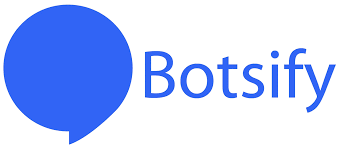
Botsify is a powerful chatbot building platform that allows businesses to create their own customized chatbots without any prior coding experience. With its user-friendly drag-and-drop interface, businesses can easily build and deploy chatbots to a variety of messaging platforms, including Facebook Messenger, WhatsApp, and Slack. Botsify also offers a variety of features, including integrations with third-party services, natural language processing, and advanced analytics, making it an ideal choice for businesses of all sizes looking to enhance their customer engagement and support capabilities.
Pros
Cons
Overall Rank
In conclusion, AI tools are revolutionizing the way chatbots operate and interact with users. The emergence of AI-powered chatbots has made it possible for businesses to provide exceptional customer service 24/7. By using these tools, companies can reduce customer support costs and improve customer satisfaction levels. Among the best AI tools for chatbots are IBM Watson Assistant, Dialogflow, and Botpress. IBM Watson Assistant offers a wide range of features that allow developers to create highly personalized chatbots with natural language processing capabilities. Dialogflow is another powerful AI tool that supports multiple languages and integrates seamlessly with other Google Cloud products. Botpress is an open-source chatbot development platform that allows developers to create and deploy chatbots with ease. Ultimately, choosing the right AI tool for your chatbot depends on your business needs and budget. It's important to consider the level of customization required, the complexity of the chatbot's functionality, and the level of support offered by the tool's vendor. With the right AI tools and a solid strategy, businesses can create chatbots that are intelligent, engaging, and capable of delivering exceptional customer experiences.
